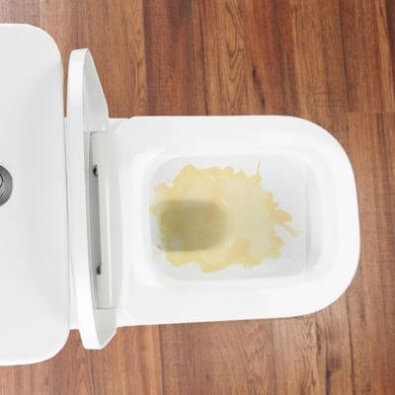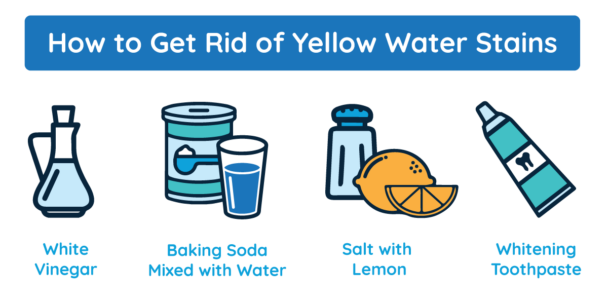There’s no doubt about it: yellow toilet bowl stains are embarrassing, alarming and annoying to clean. If you’re like most people, you hate having to constantly scrub them away so that your guests don’t see them. Furthermore, you’ve probably wondered if something harmful in your water is causing those stains.
The goal of this page is to take all your troubles away! Not only will we tell you what those yellow water stains are, but we’ll also help you get rid of them permanently.
Keep reading to learn:
- The causes of yellow toilet bowl stains
- If those stains are harmful
- Easy stain-cleaning techniques
- How to prevent yellow water stains in your home



